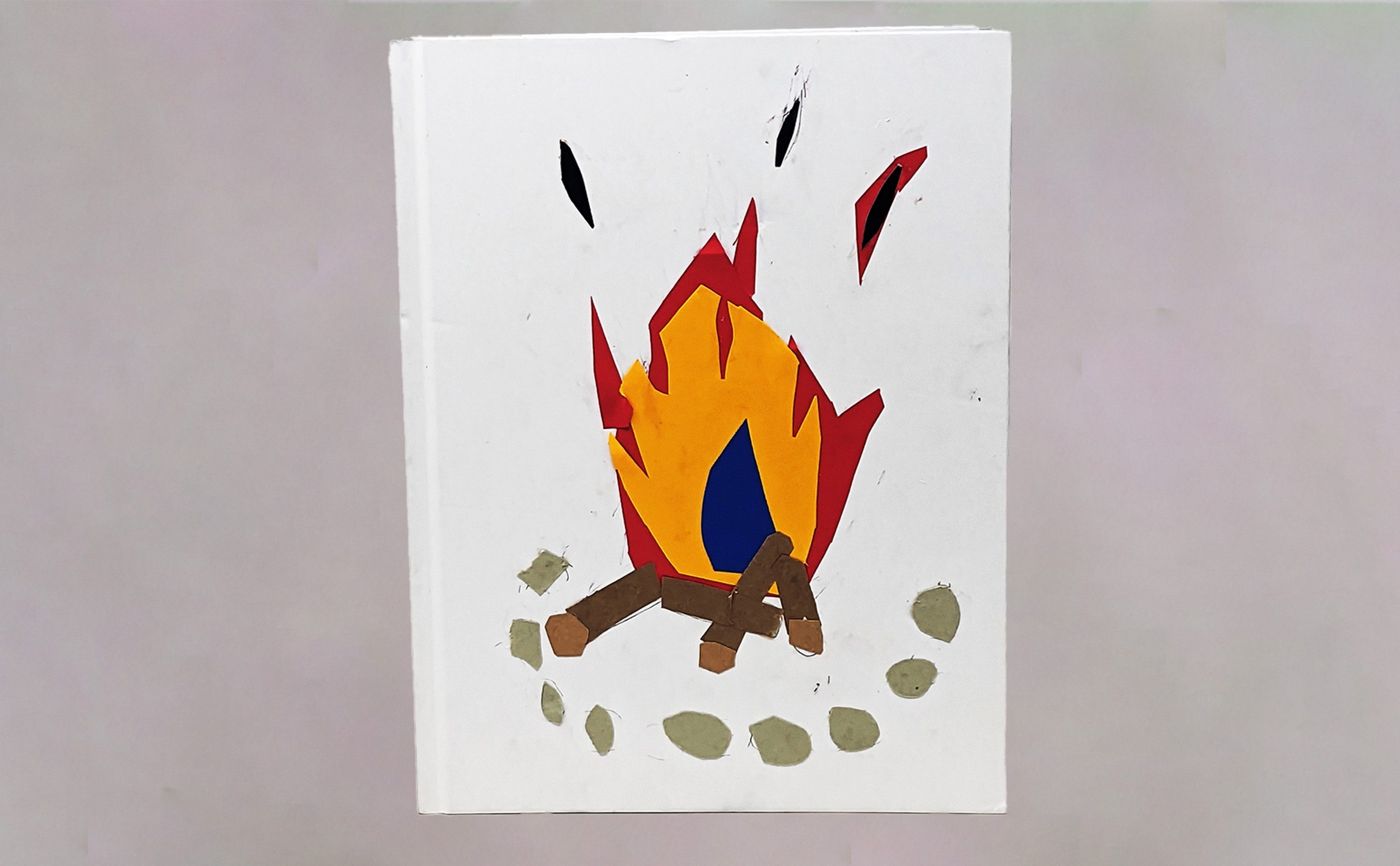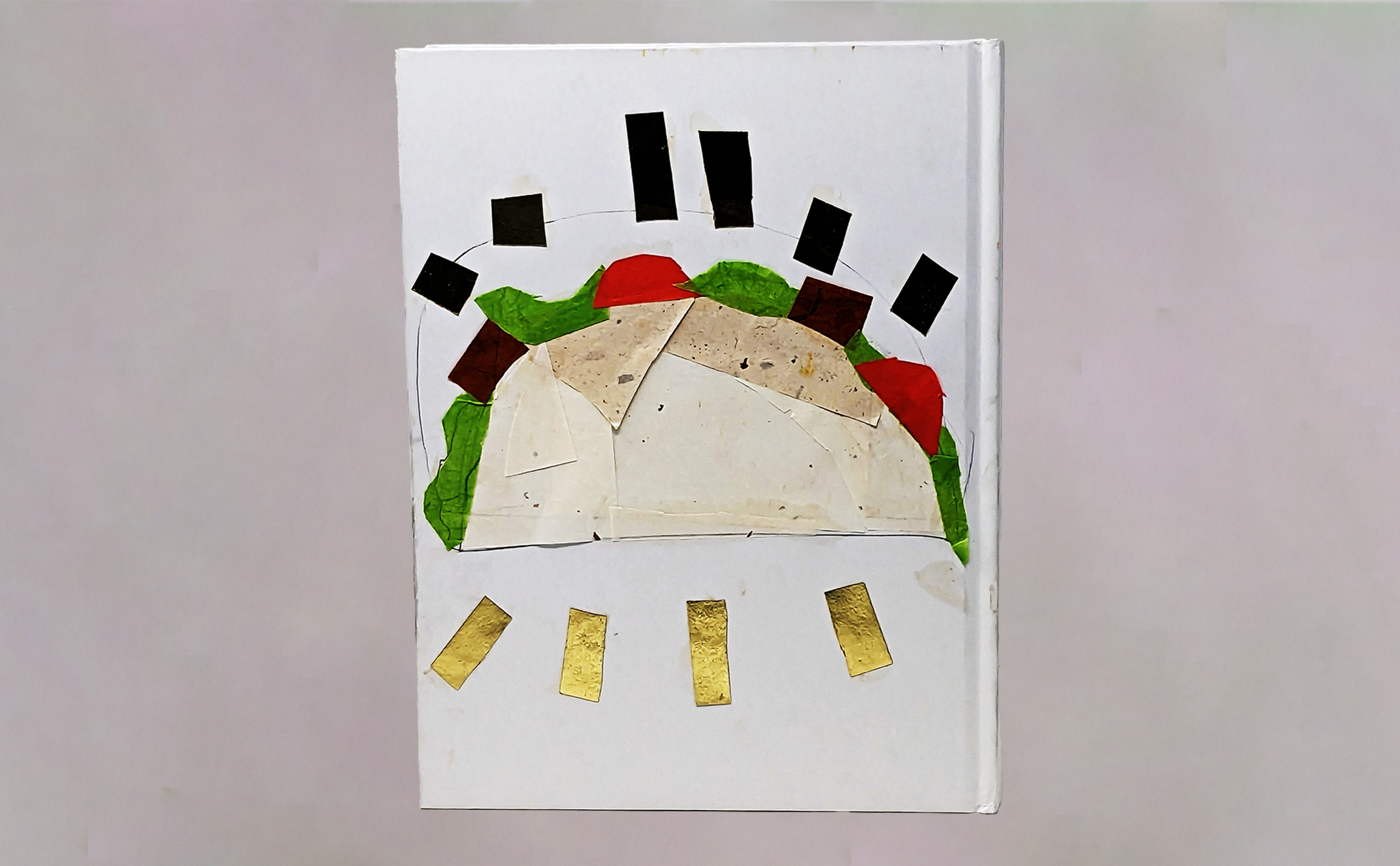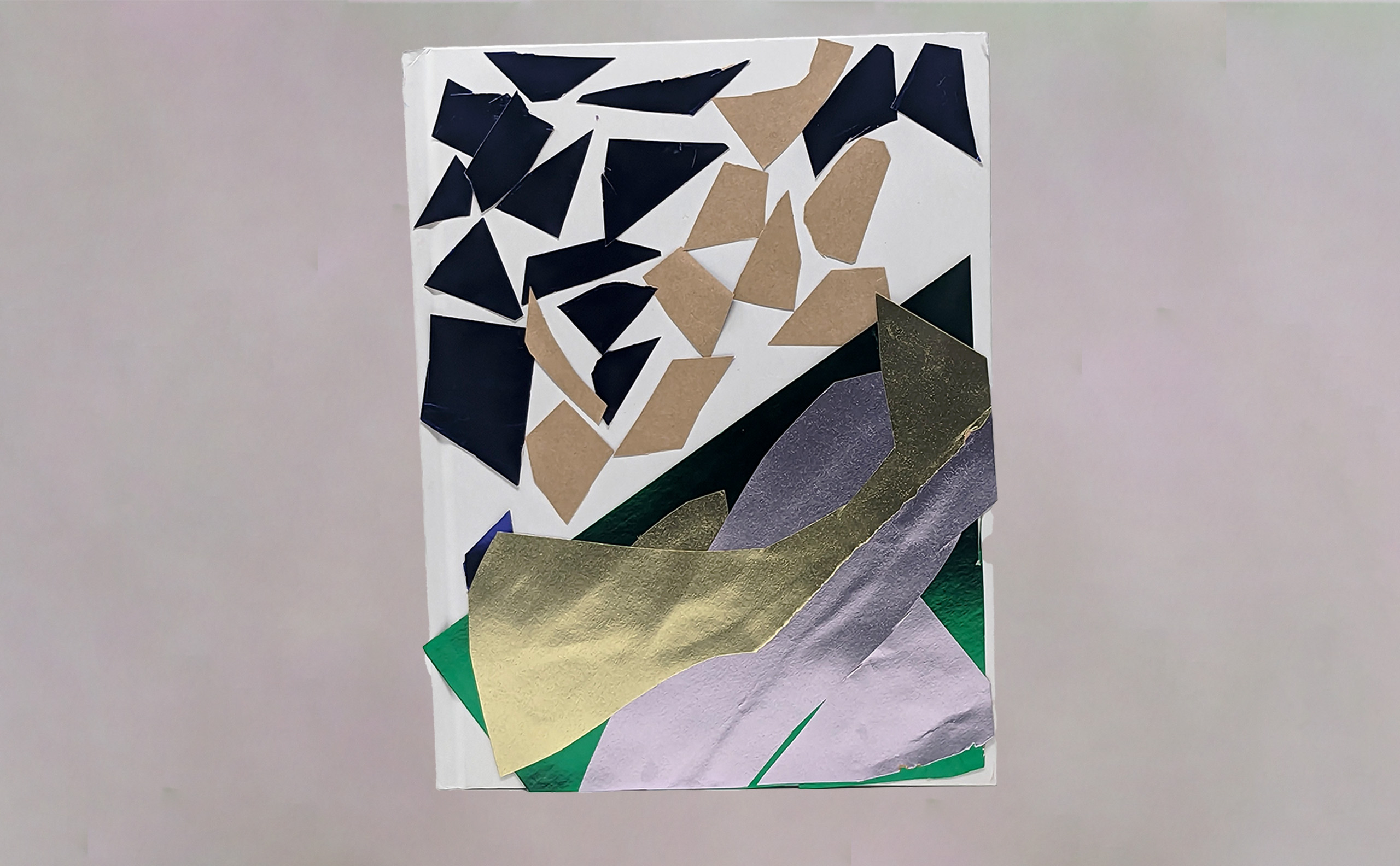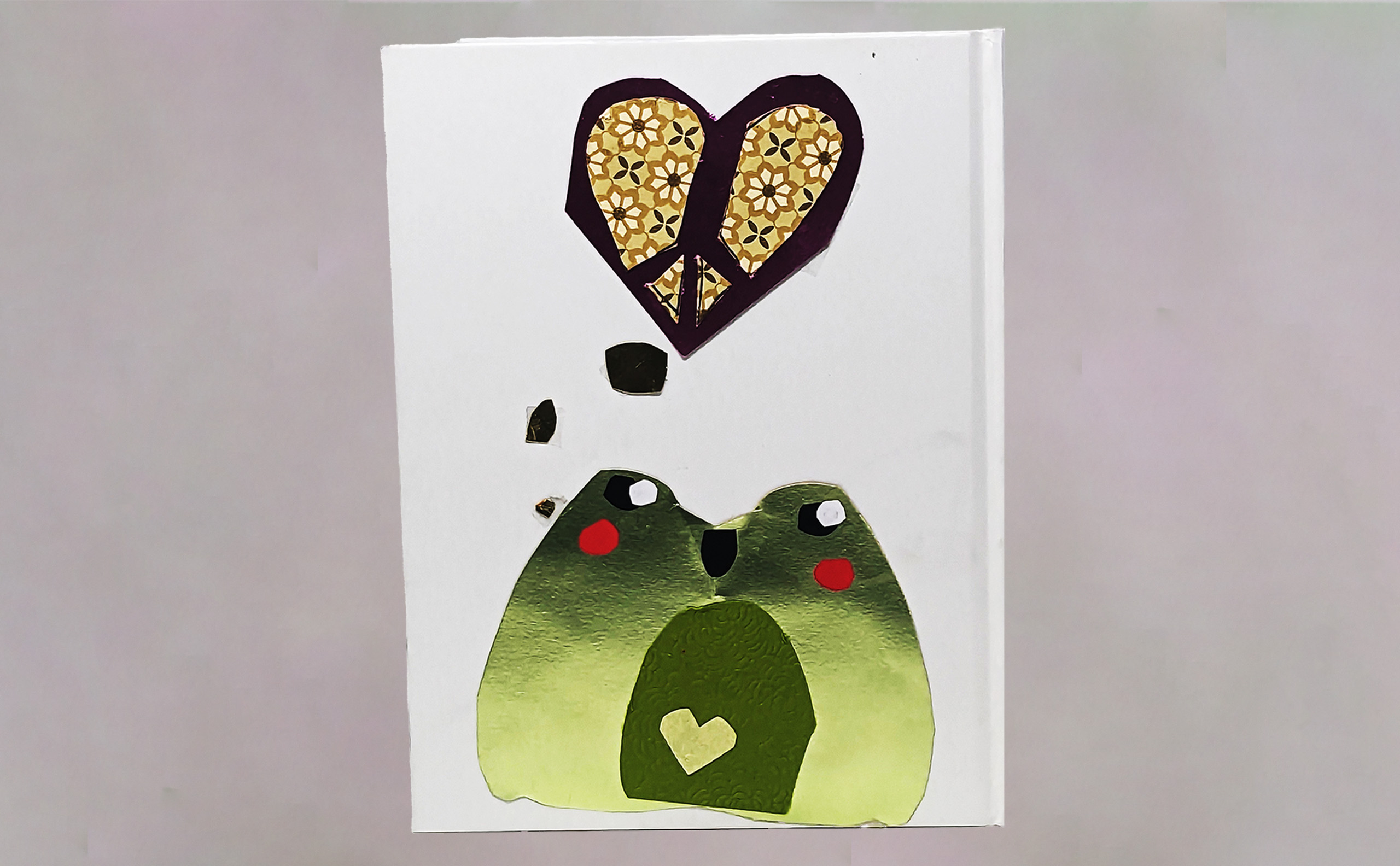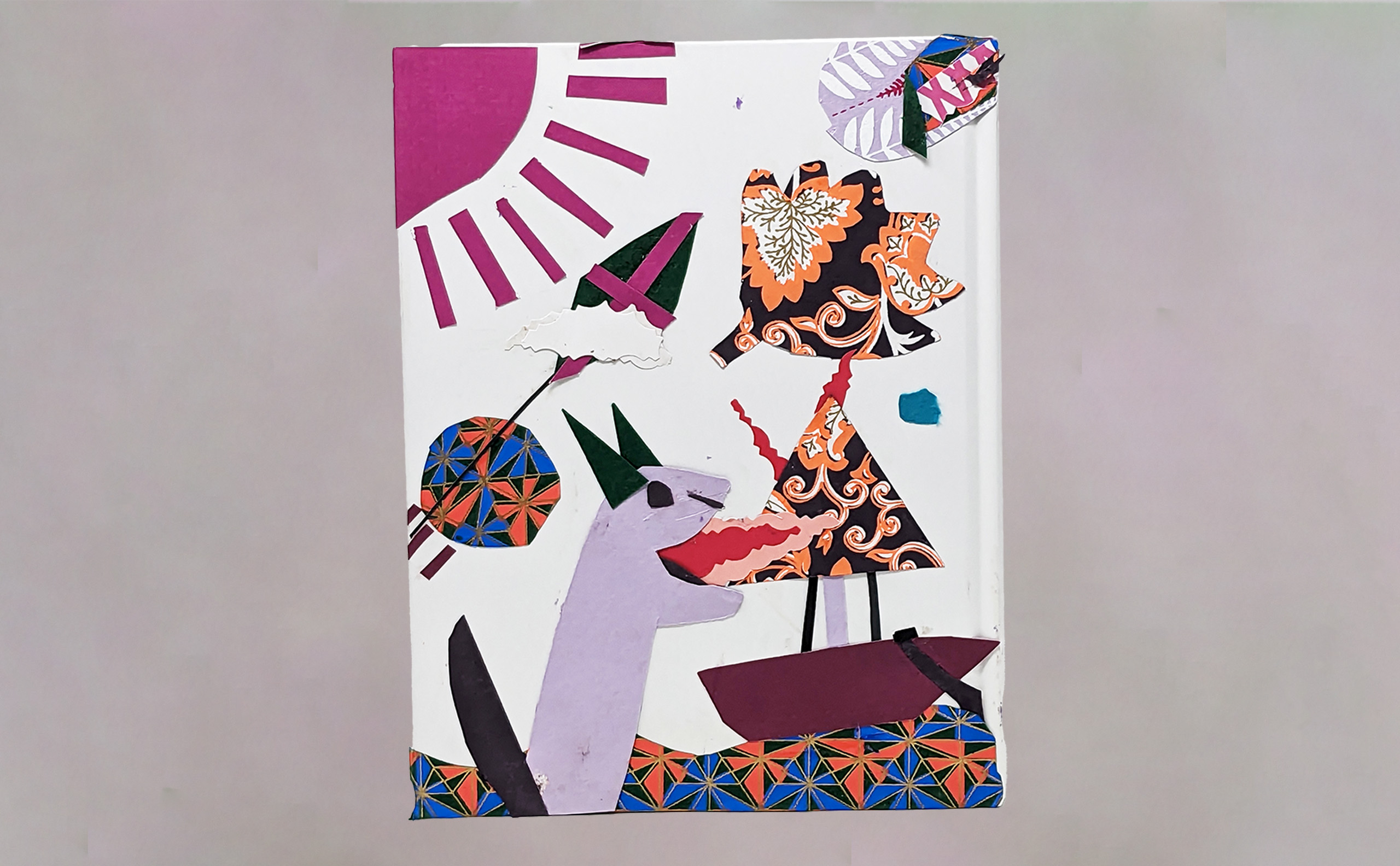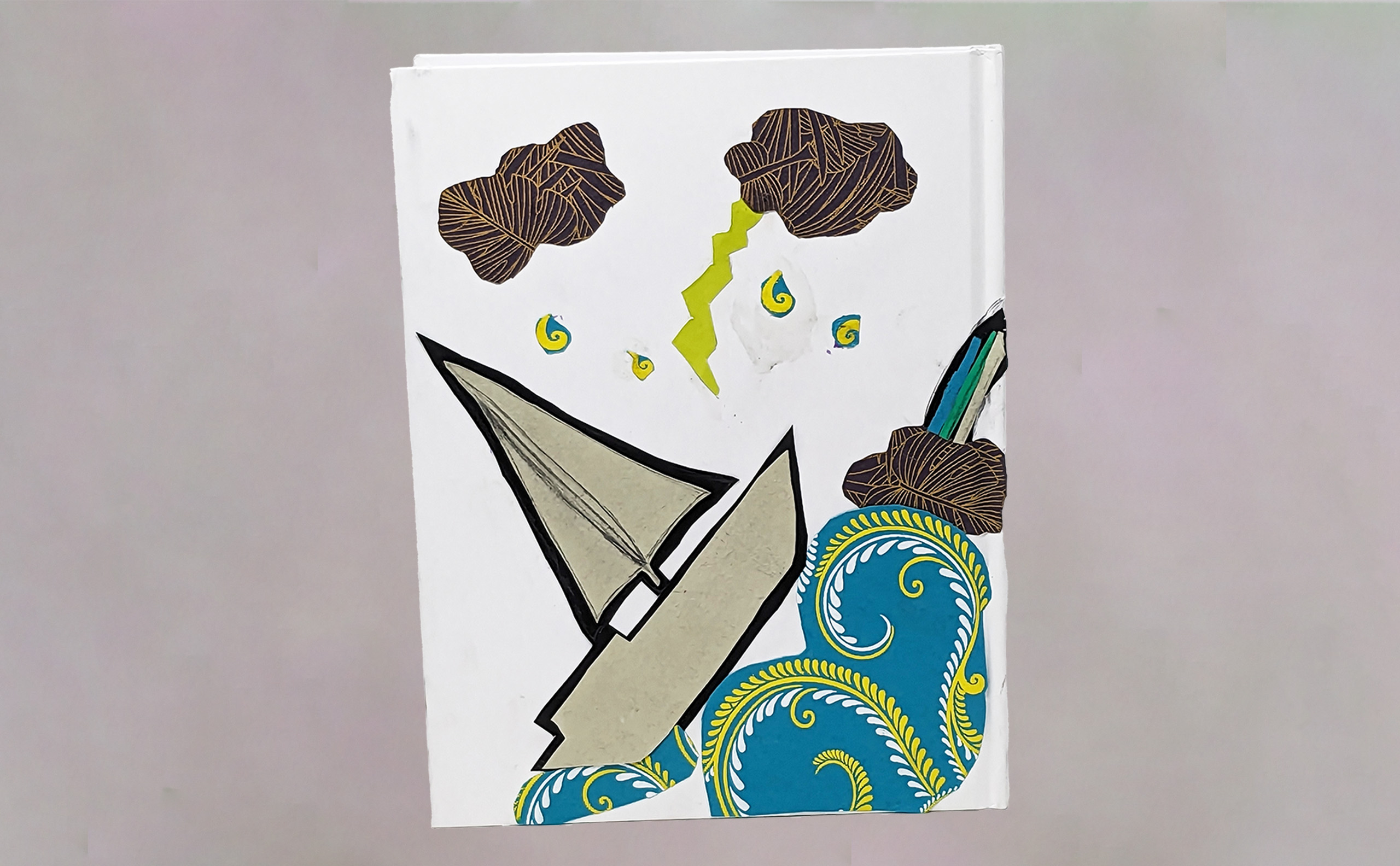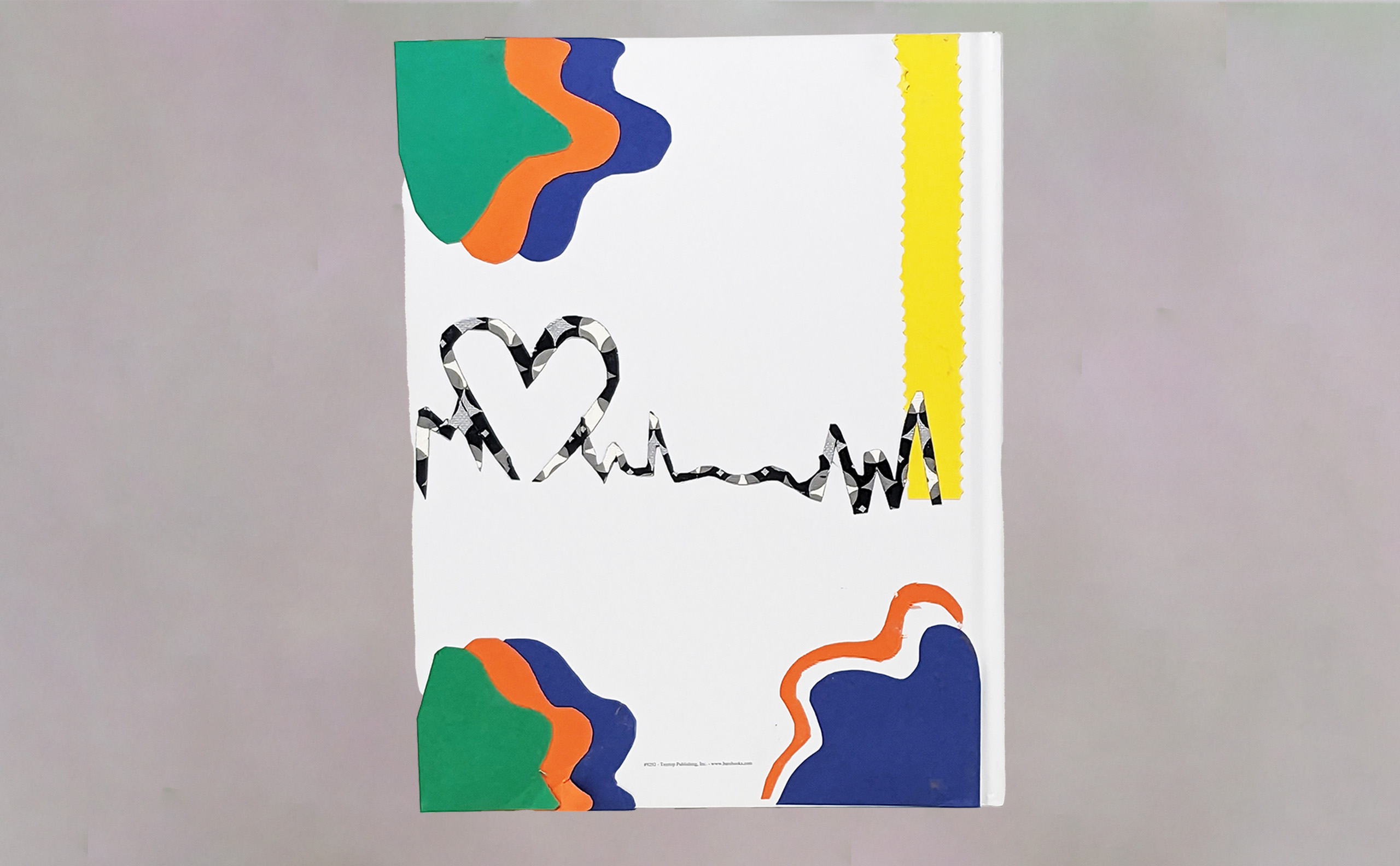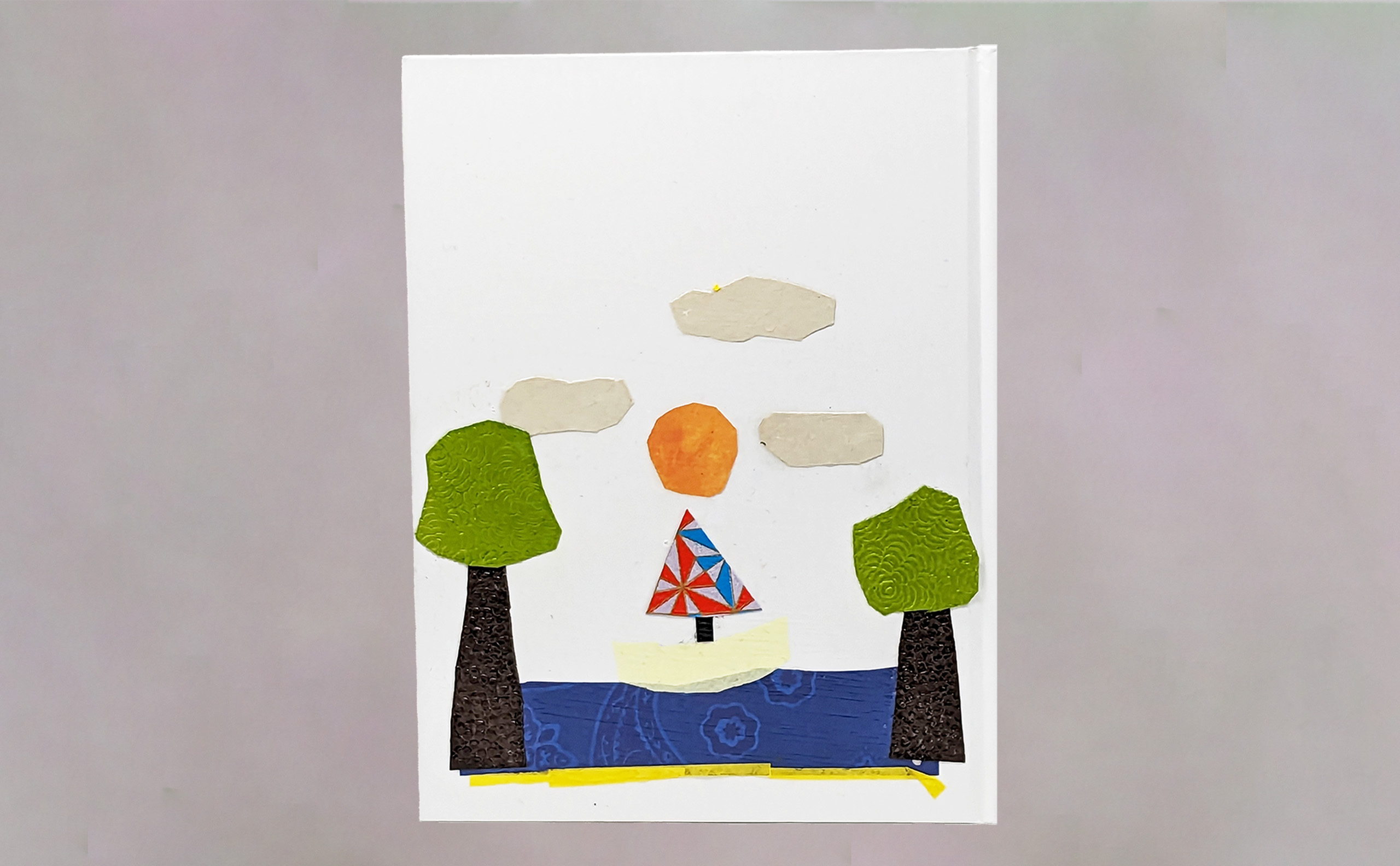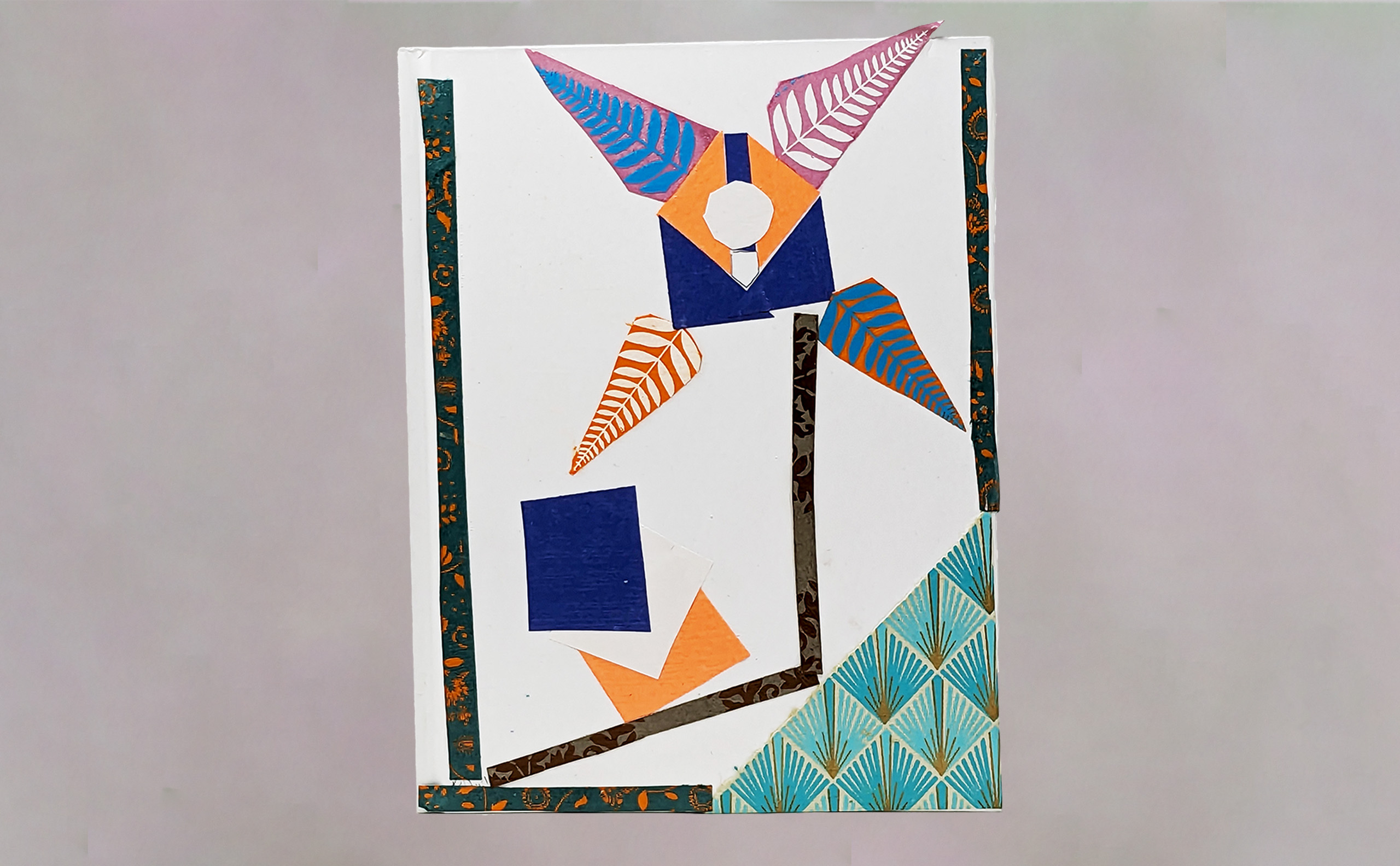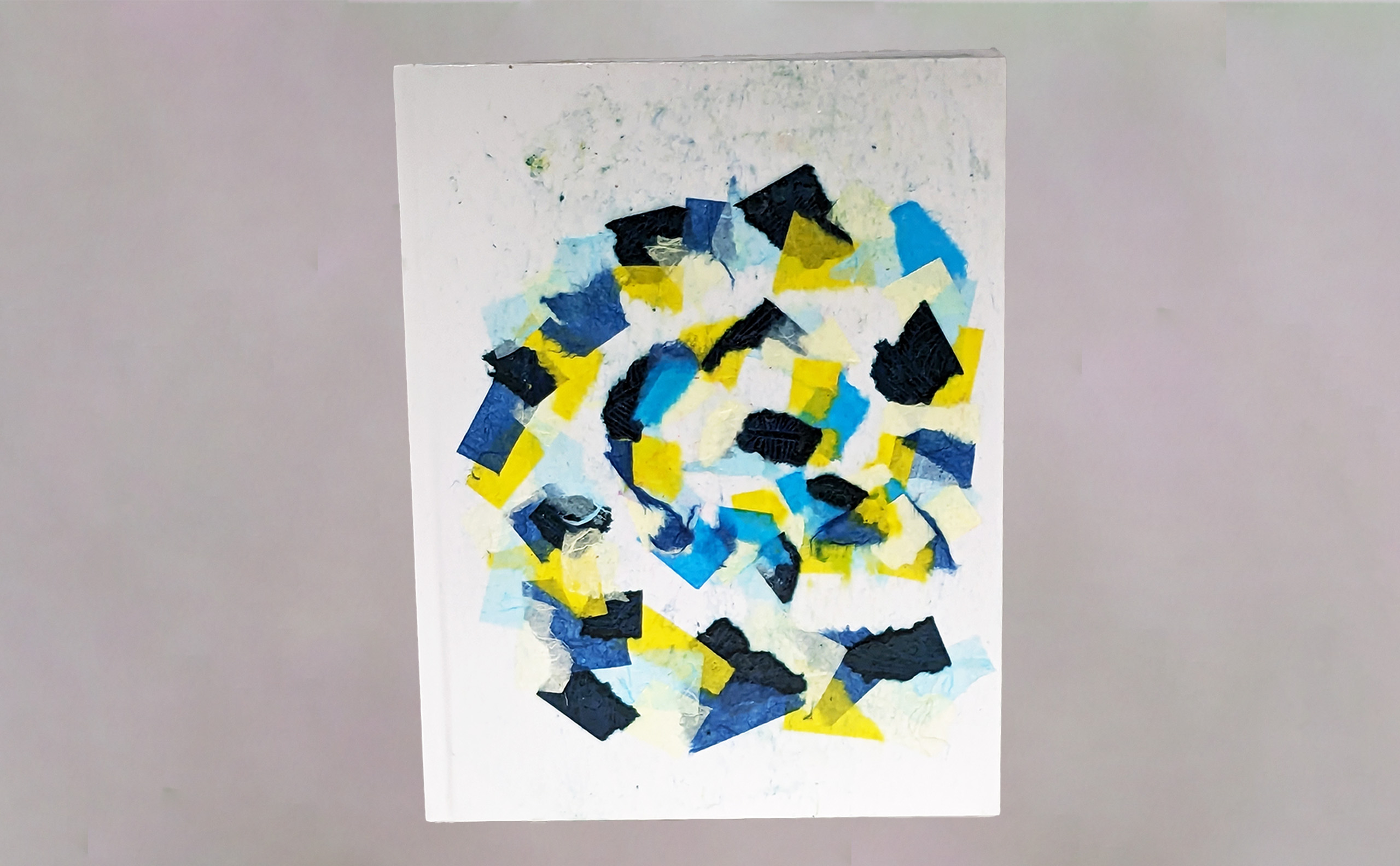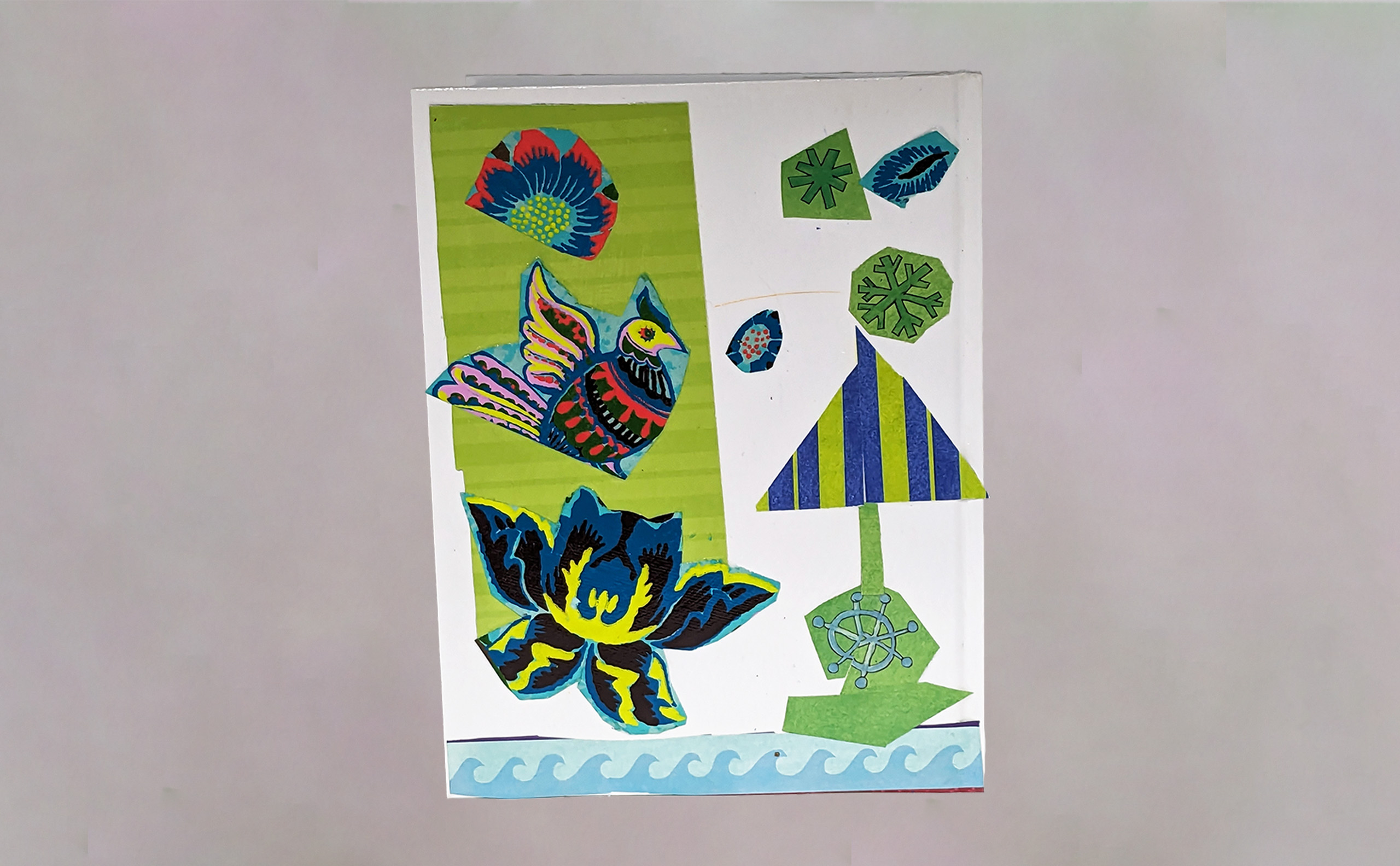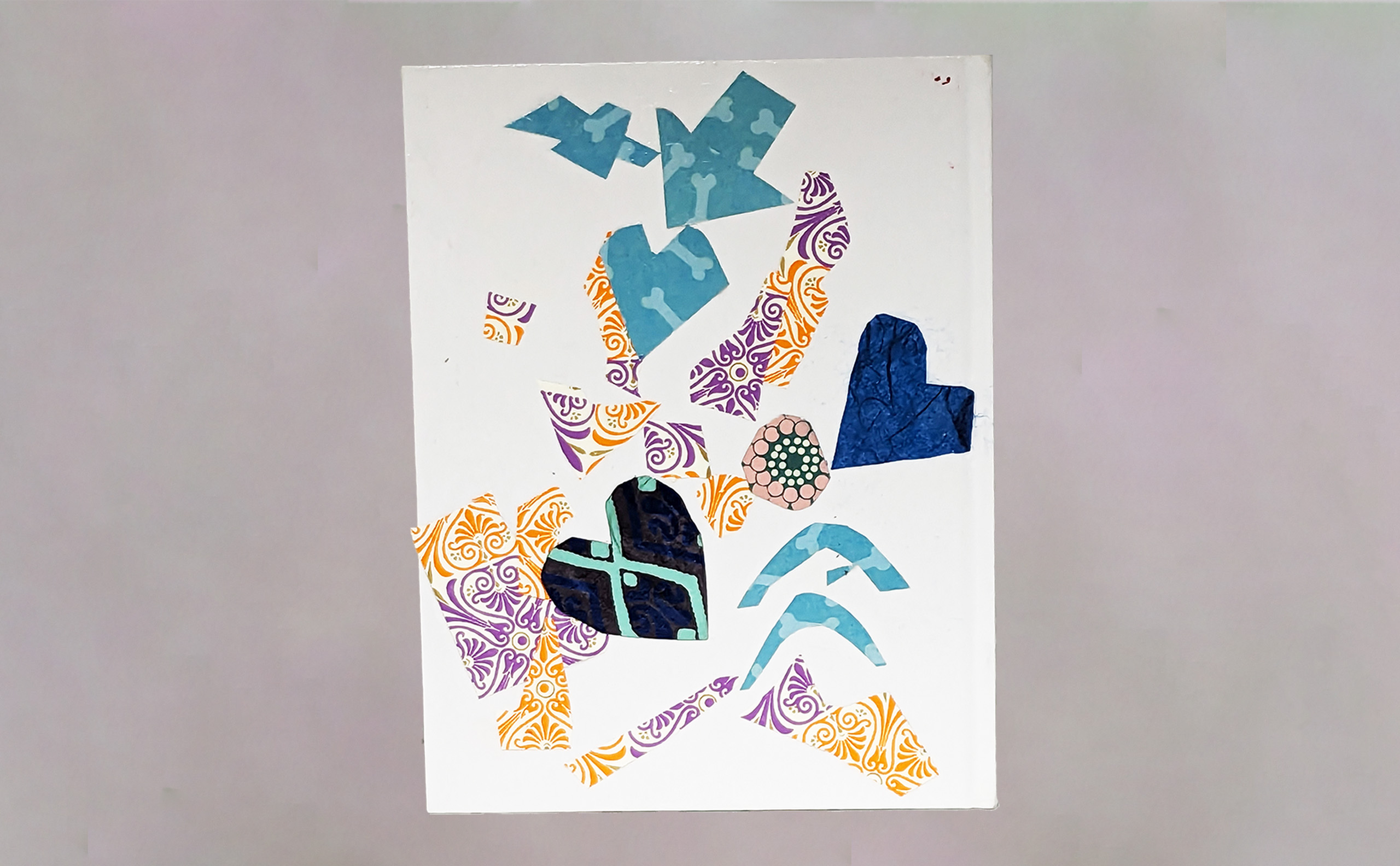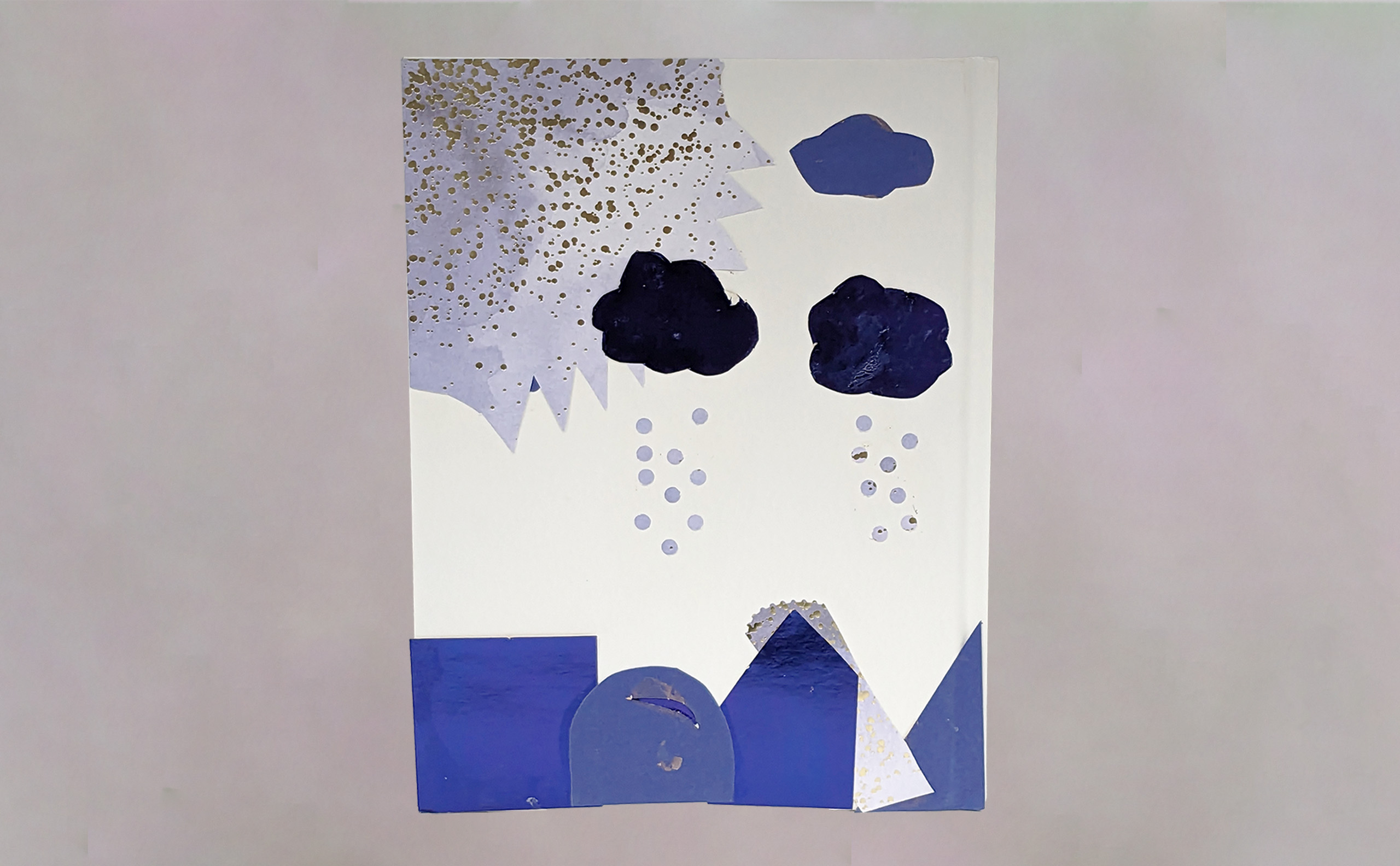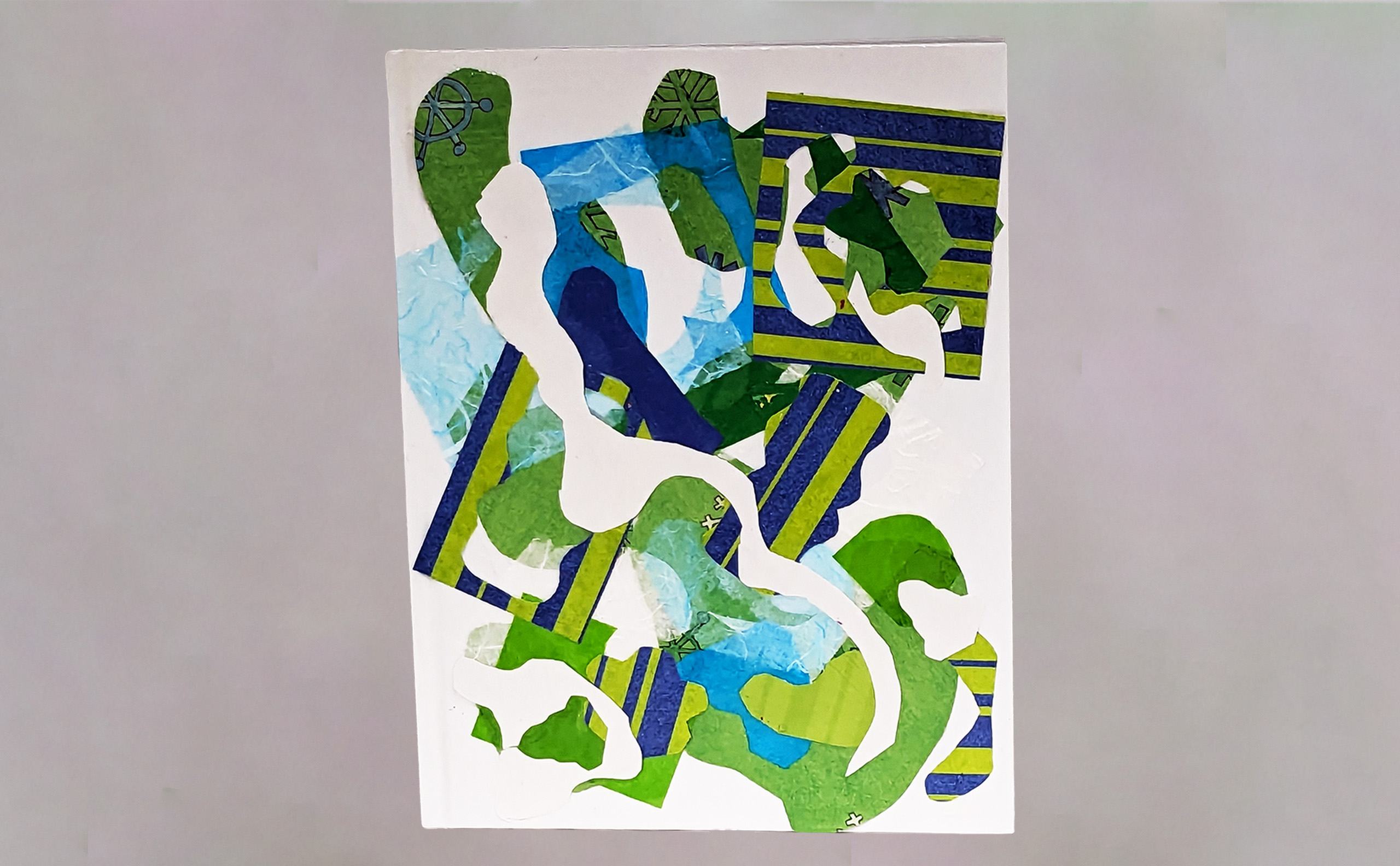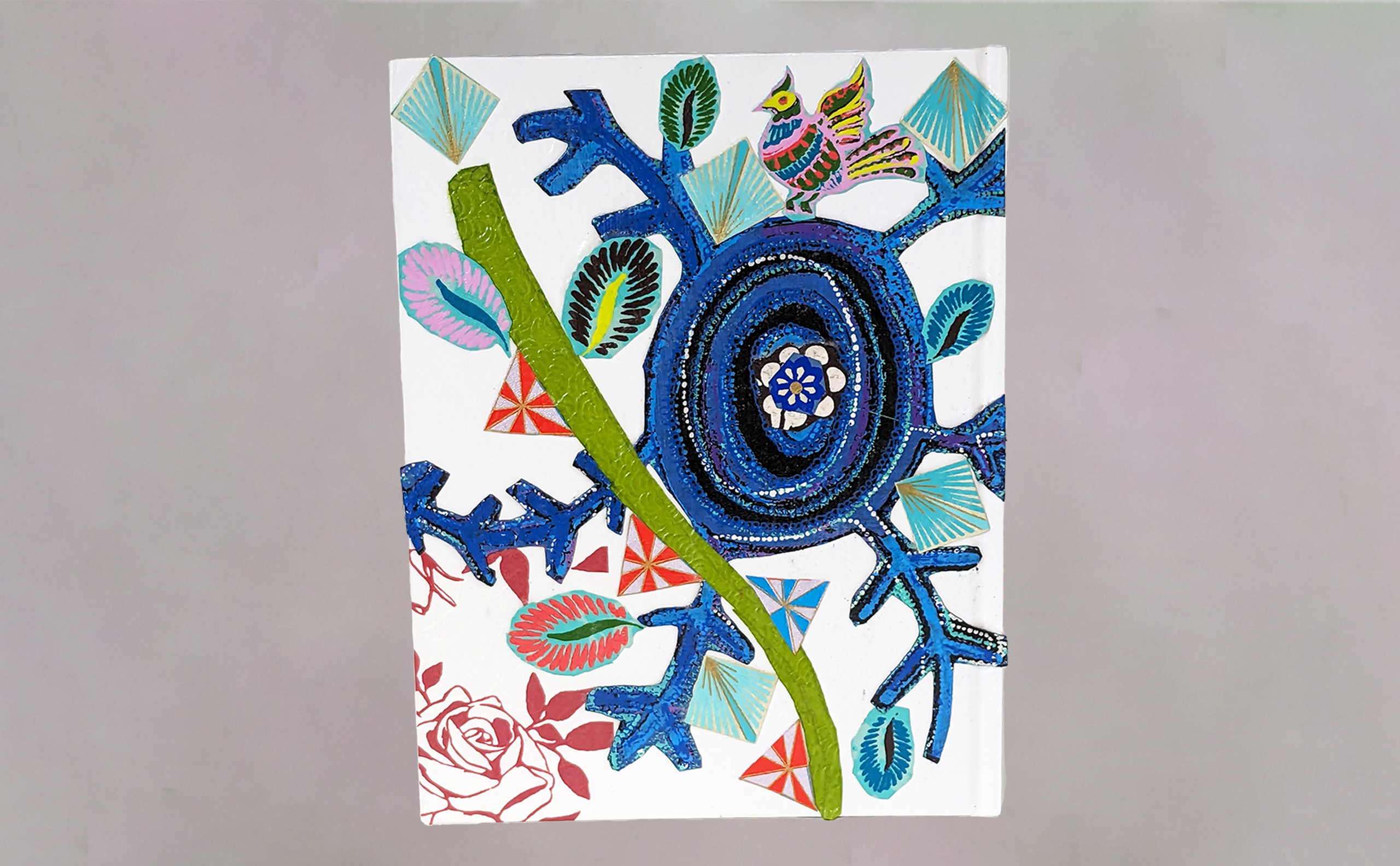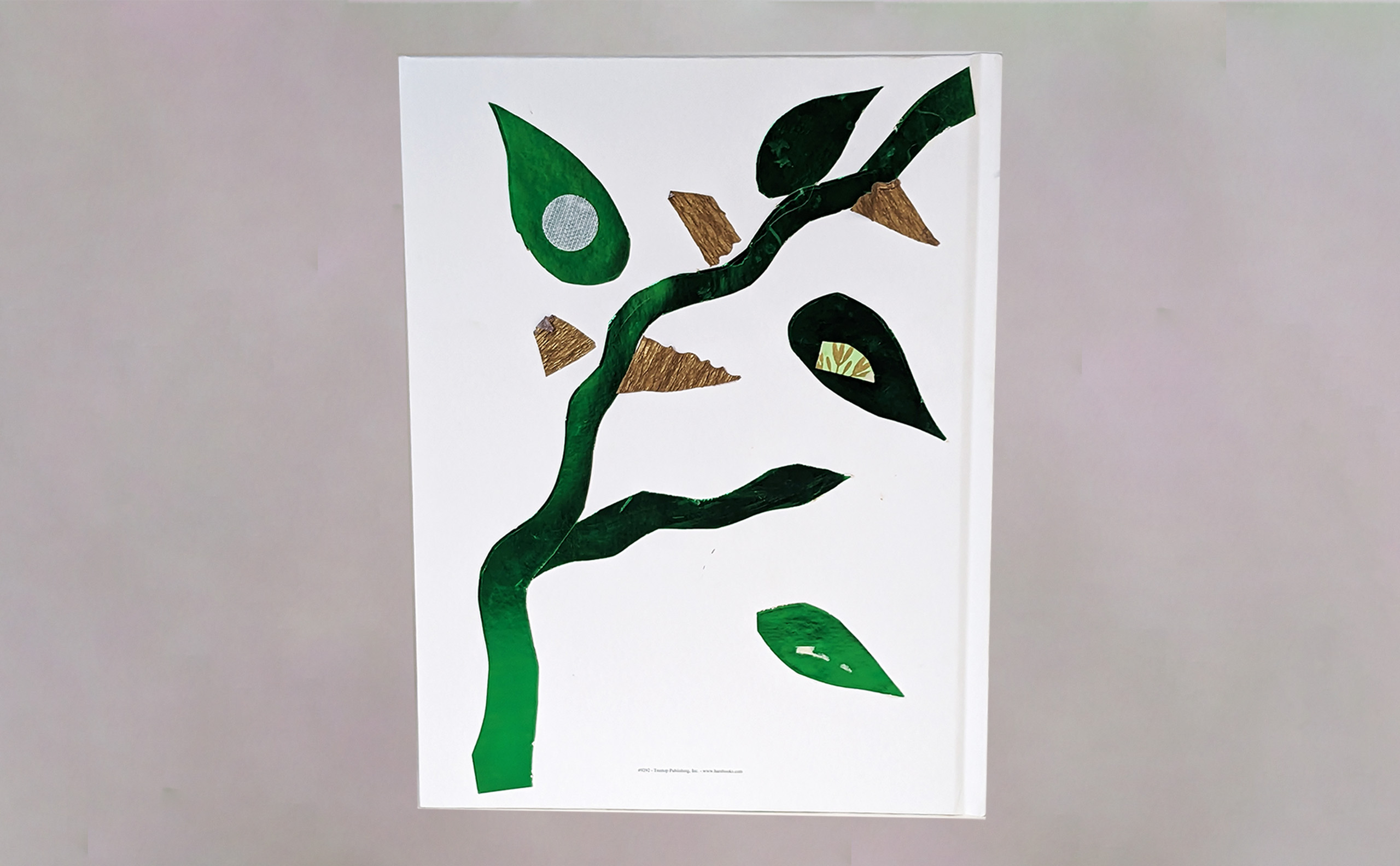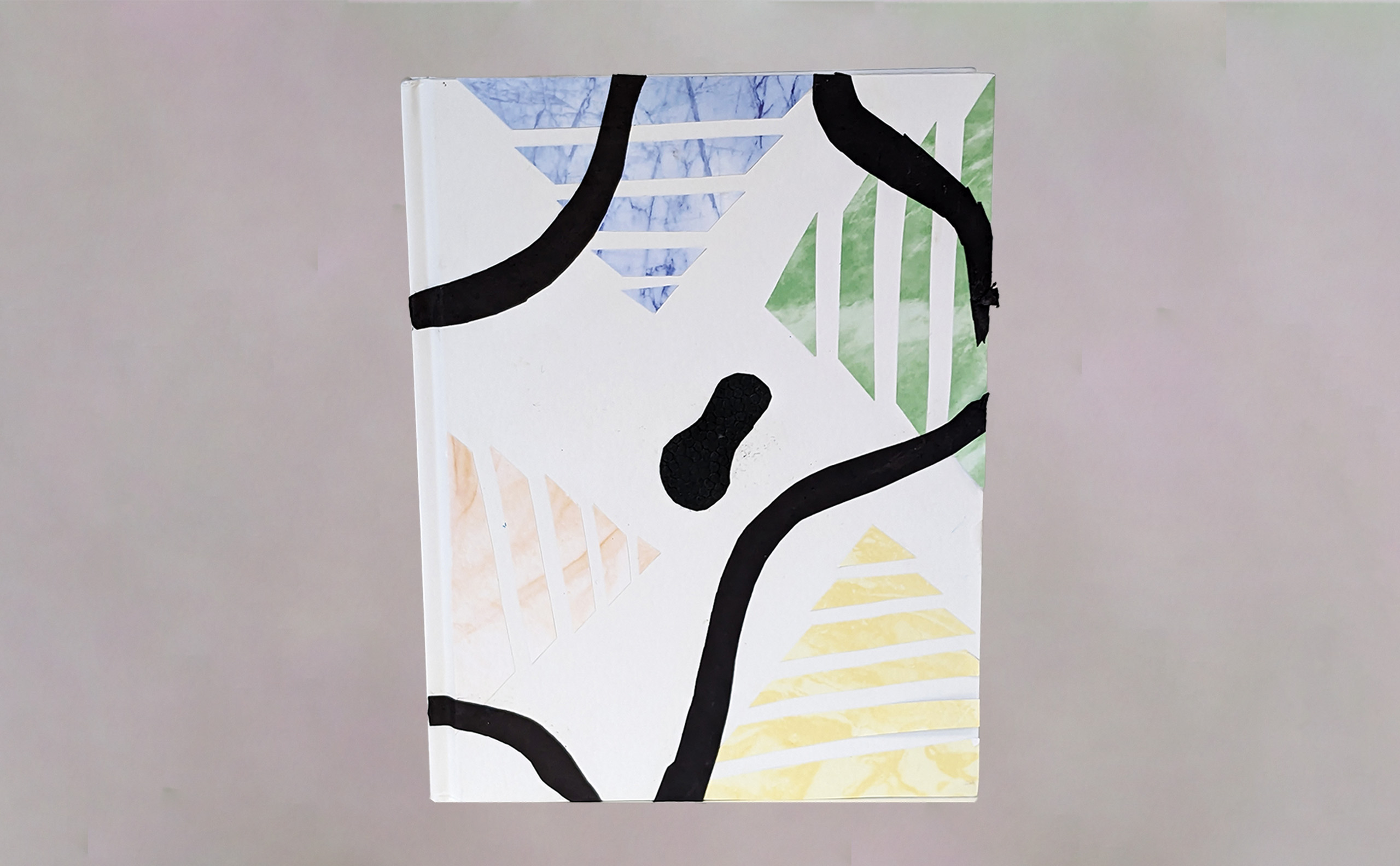Teens Hope through the Power of Art
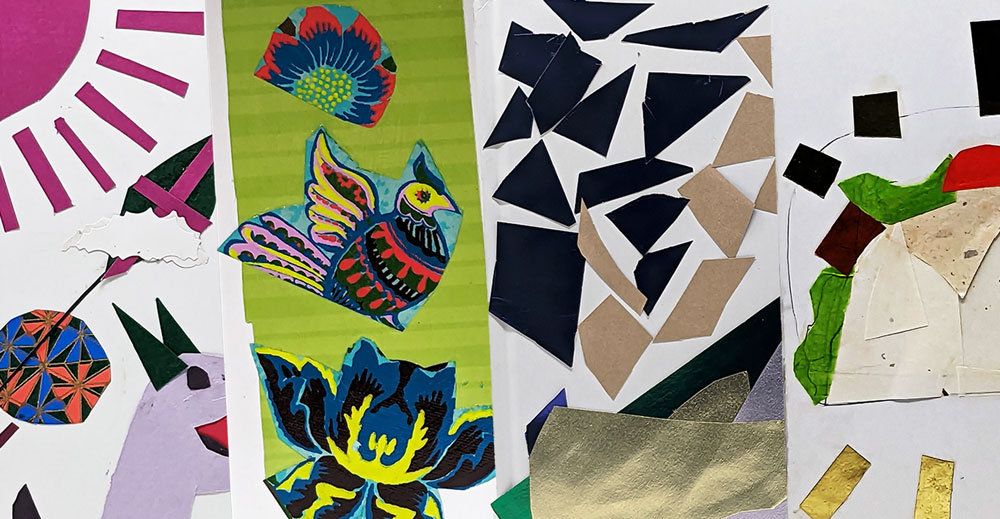
Hebrew College Winter Art Exhibit Showcases Hope Diary Covers for Israeli Teens
Boston artist Shirah Rubin has a deep appreciation for the spiritual possibilities of a good journal. “After I lost my mom, I was given an unlined diary which at first I resisted and then fell in love with…Keeping a diary and sketchbook are core to my art practices.” This appreciation had already led Rubin to develop journal-making art workshops which she’d been leading for nearly a year for a variety of communities when she found herself describing the project to her friend Deborah Feinstein, chair of the Hebrew College Arts Initiative and exhibit curator. Feinstein had been thinking about the necessity of hope, and looking for an exhibit that would highlight this theme in the face of the Israel-Hamas War. This conversation was the inception of Hebrew College’s new winter art exhibit, The Hope Diaries: A Collaborative Art Project, showcasing work from 50 fifth through eighth graders from Jewish day and religious schools across Boston.
Rubin guided students from Jewish Community Day School of Boston, Solomon Shechter of Boston, Temple Beth Zion, and Metrowest Community Day School through a collaborative art-making process. Inspired by the prompt, “What does hope look like for you?”, the Boston students assembled collage covers for diaries which were distributed to students at Yad B’Yad (Hand-in-Hand) school in Haifa, where Arab-Israeli and Jewish-Israeli youth learn together “hand-in-hand”. Across six campuses, Yad B’Yad is committed to building inclusion and equality between Arab and Jewish citizens of Israel through a growing network of bilingual, integrated schools and communities.
“The purpose of the Hope Diaries project is to offer Jewish- and Arab-Israeli students an avenue of hope through the power of art,” says Feinstein. Collage, the chosen medium, celebrates the gathering and cohering of disparate visual elements into harmonious composition. Developing this theme further, Rubin centered collaboration in the process. Students began the collage covers before swapping works with partners in their group, engaging in a creative exchange that prompted them to adapt and connect visually with their partner’s creations.
Samples of artwork from the exhibit
“I wanted the group to experience what it was like to look at and relate to it visually, highlighting or continuing a visual element and then receiving the cover back to continue a relational art practice. This was intended to reinforce ideas of how we encounter, listen, and respond to each other’s work,” Rubin says, reflecting on this co-creative process. And the collaboration will continue in Israel, where students can use the unlined diaries as a medium for their own creativity. “My hope is that young people in Israel can use these diaries to process, heal, and to imagine hope even during these dark times.”
The diaries were delivered to Israel in early January for distribution to Yad B’Yad students. Feinstein resonates with this next phase of the project: “These covers for Hope Diaries are offerings as ‘containers’ for each child’s expression and imagination during this most difficult time.”
Hope Diaries: A Collaborative Art Project runs January 18-February 29 at Hebrew College, with a celebratory opening on January 28 at 11 a.m. in Hebrew College’s Mascott Beit Midrash, featuring remarks from Shirah Rubin. RSVP here to the opening.
Tamid Adult Learning Classes Professional Development Support Our Work


